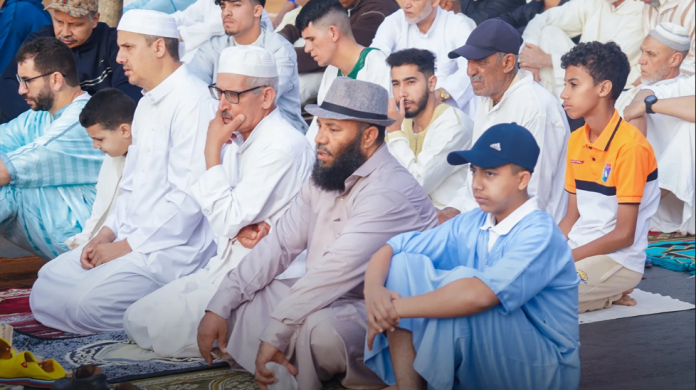Rabat: For many families in Morocco, it was the first time they celebrated the Eid al-Adha without the traditional sacrifice of a sheep, reports Morocco World News. King Mohammed VI performed the sacrifice on behalf of all Moroccans.
In past years, the streets would come alive right after the Eid prayer, as people rushed home, eager to head to their rooftops where sheep were waiting. But this year’s Eid al-Adha felt different in Morocco.
Because of the high cost of livestock and economic challenges, King Mohammed VI decided to cancel the traditional Eid sacrifice. The usual hustle and bustle of Eid morning was replaced by calm and reflection.
Still, the spirit of Eid remained. Families came together for prayers, shared meals, even if there was no sacrifice, and enjoyed quality time with loved ones. Children still dressed in their best clothes, and houses were still filled with warmth and kindness. For many, the day became less about the ritual and more about what it represents: faith, family, and gratitude.
However, King Mohammed VI performed the ritual Eid al-Adha sacrifice at the Royal Palace in Tetouan on June 7. The ceremony marking one of the most sacred traditions in the Islamic calendar took place in the presence of several members of the Royal Family, top government officials, and religious dignitaries.
The King personally carried out the ritual sacrifice of two rams shortly after the Eid prayer, keeping with the tradition of the Prophet Muhammad ﷺ, who used to offer two sacrificial animals during Eid Al Adha, one for himself and his family, and one for the wider Muslim community.
The moment of sacrifice was broadcast live on national television, showing the monarch in traditional Moroccan attire as he carried out the rite in accordance with Islamic tradition.




